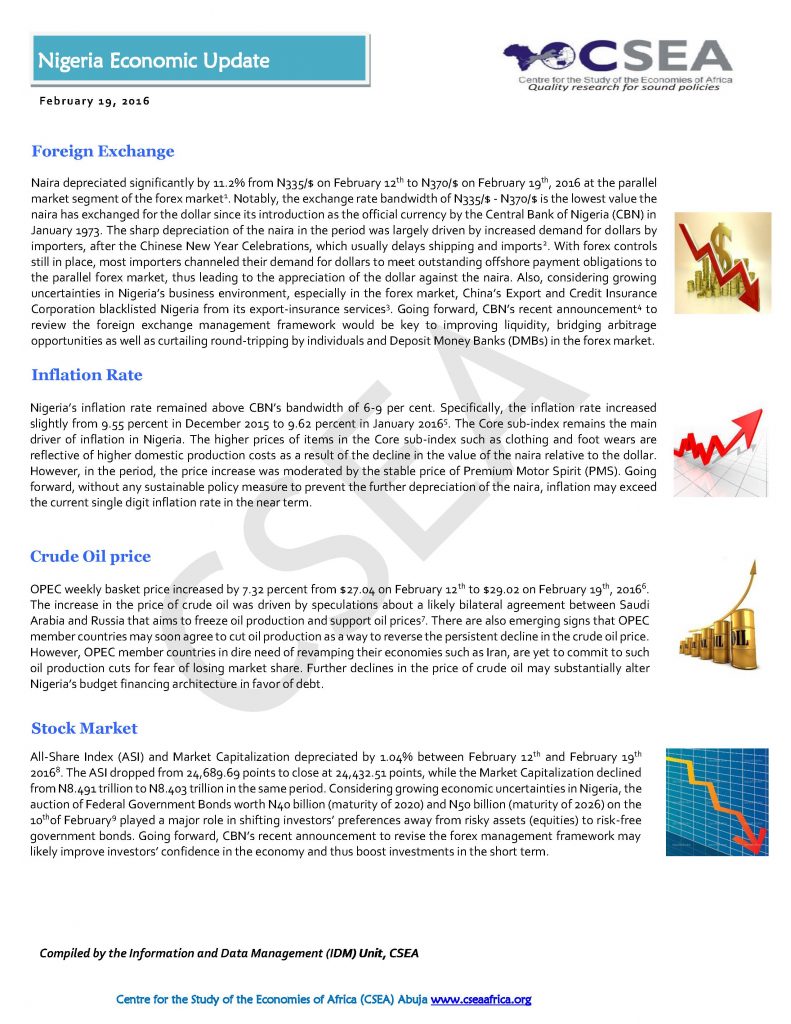Macroeconomic Report & Economic Updates

March 3, 2016
Nigeria Economic Update (Issue 10)
Nigerias inflation rate remained above
CBNs bandwidth of 6-9 per cent. Specifically, the inflation rate increased
slightly from 9.55 percent in December 2015 to 9.62 percent in January 20165.
The Core sub-index remains the main driver of inflation in Nigeria. The higher
prices of items in the Core sub-index such as clothing and foot wears are
reflective of higher domestic production costs as a result of the decline in the
value of the naira relative to the dollar. However, in the period, the price
increase was moderated by the stable price of Premium Motor Spirit (PMS). Going
forward, without any sustainable policy measure to prevent the further
depreciation of the naira, inflation may exceed the current single digit
inflation rate in the near term.
